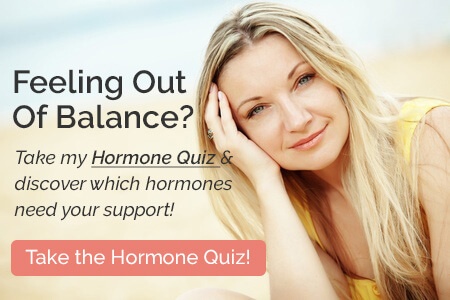Premenstrual Syndrome (PMS) is a common problem in women of reproductive age and is defined as recurrent moderate psychological and physical symptoms that can occur during the luteal phase, and results with the onset of menstruation. PMS effects between 20 – 32% of women. A more severe form of PMS, called Premenstrual dysphoric disorder, or PMDD, which has increased intensity of symptoms and leads to significant dysfunction in activities of daily living.
Signs and Symptoms of PMS
PMS can include numerous signs and symptoms including:
- abdominal bloating
- fatigue
- breast tenderness
- headaches
- moodiness
- food cravings and increased appetite
- irritability
- depressed mood
- forgetfulness
- difficulty focusing
- anxiety
- thirst
- acne
- GI upset
- hot flushes
- palpitations
- dizziness
- lower extremity edema
Causes of PMS
We don’t fully understand what causes PMS, but it appears to be a complex interplay of a number of factors including:
- Changes in estrogen and progesterone levels
- GABA and serotonin changes
- Hypothalamus-pituitary-adrenal axis dysregulation and an abnormal stress response
- Changes in fluid regulation
- Nutrient deficiencies such as calcium, magnesium, B6, Zinc, essential fatty acids, and tryptophan.

Diagnosis of PMS
There is no definitive guideline for the diagnosis of PMS, but most agree that if a physical or mental emotional symptoms becomes present during the luteal phase, and resolves with onset of menses, this is consistent with PMS. We should also rule out other causes such as mood and anxiety disorders, eating disorders, menopause, thyroid issues, anemia, substance abuse, migraines, IBS, and chronic fatigue.
Testing for PMS
- CBC
- CMP
- ferritin
- thyroid panel
- FSH, depending on age
- salivary expanded female hormone panel
- salivary adrenal stress index
Standard Treatments of PMS
First line conventional treatments include anti-depressants like an SSRI, however, these medications have numerous side effects including loss of libido, weight gain, flat mood, and negative withdrawal effects. Oral contraceptives such as Yaz are also commonly used, however, these cause a significant risk of developing blood clots, a life threatening condition. Exercise has also been found to be helpful in alleviating PMS symptoms.
Integrative Treatments for PMS
There are many options we can use to naturally alleviate the annoying symptoms of PMS. The bonus is that most of them are free of unwanted side effects.
- Calcium has been shown in research to reduce fatigue, food cravings, and depression
- Vitex (Chaste Tree of Chasteberry) is a botanical that has been well studied for having significant improvement in PMS symptoms
- Magnesium with Vitamin B6 has been shown to reduce PMS symptoms by over 50%
- Essential fatty acids in fish oil have been shown to reduce depression, nervousness, anxiety, lack of concentration, bloating, headaches, and breast tenderness
- Tryptophan can raise serotonin levels and lower mood symptoms. Serotonin also appears to be related to PMS. Carbohydrate cravings in the luteal phase may be an attempt to raise serotonin because carbs facilitate the transport of tryptophan, the amino acid precursor to serotonin, into the brain and thus raising serotonin. Women with PMS are more likely to eat refined carbs, more sugars, and dairy products. We can use amino acid therapy strategically to lower carb cravings.
- Hypericum perforatum (St. John’s Wort) is a botanical that has mixed research outcomes, but is a safe addition to help alleviate PMS symptoms, however, this can affect the metabolism of other medications so should be used under the supervision of a physician
- Ginkgo biloba is another botanical shown to improve blood flow to the reproductive organs and reduces physical and mental symptoms of PMS
- Crocus sativus (Saffron) is a common kitchen spice that is known to significantly reduce PMS symptoms by up to 50% and may also have anti-inflammatory and anti-oxidant benefits
- Progesterone has had mixed results in the research, but it can be successfully used in the proper dosing with caution
- Yoga and medication are stress reduction techniques proven to reduce PMS symptoms
- Hormone desensitization using low dose intradermal hormone administration can improve PMS symptoms in women with a sensitivity to their own hormones
- Liver detoxification can improve the clearance of hormones using nutraceuticals like indole-3carbinol and diindolylmethane
